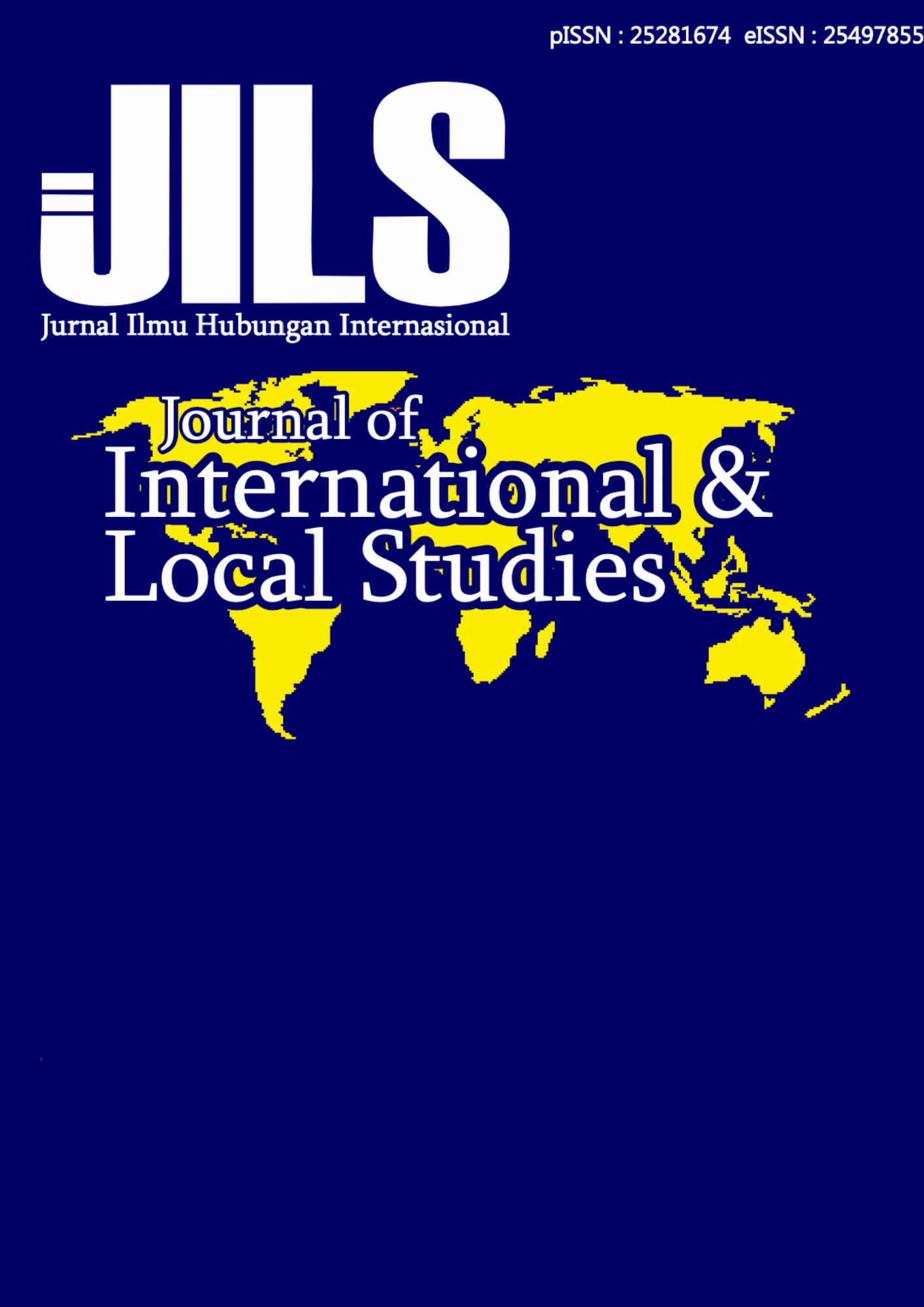Should There Be A Second Chance for Ex-ISIS Indonesians?
DOI:
https://doi.org/10.56326/jils.v7i2.3031Keywords:
Statelessness, ex-ISIS, Indonesia, international law, securityAbstract
The year of 2019 was hard on Islamic State in Iraq and Syria (ISIS), they lost their main territories and suffer from collapsing until finally lost their leader, al-Baghdadi, by US attack late October 2019. The situation led to the escape of thousands of their ex-members that currently stranded in several different refugee camps in Syria, among the thousands several hundred are Indonesian citizens. On February 11th 2020, the Indonesian government decided to not taking back all 689 Indonesian citizens that previously involved in the mentioned terrorist organization. This decision was taken under the pretext of preventing radical ideas to develop in Indonesia’s soil and ensuring the safety of Indonesian people from the threats of terrorism. Within this paper, we would like to challenge Indonesia’s decision by assessing the situation through the concept of international law and international security. According to the Universal Declaration of Human Rights and 1961 Convention on Reduction of Statelessness, every country should prevent its citizens from being stateless, thus Indonesia is in no position to reject its citizens and must assist them to get back to their country. Using the notion of international security, it is theoretically more beneficial for Indonesia to take their citizens back, rejection may lead to more dangerous retaliation by the abandoned citizens and could possibly cause bigger harm in their current state. This paper will try to offer alternative viewpoints to the current Indonesia’s policy.
References
Andriyani, N. L., & Kushindarti, F. (2017). Respons Pemerintah Indonesia dalam Menghadapi Perkembangan Gerakan Islamic State di Indonesia (The Response of the Indonesian Government in Facing the Development of the Islamic State Movement in Indonesia). Jurnal Penelitian Politik, 14(2), 223-238.
Asshididiqie, Jimly. (2009). Pengantar Ilmu Hukum Tata Negara (Introduction to Constitutional Law). Jakarta: Rajawali Pers.
BBC Indonesia. (2020). WNI eks ISIS di Suriah yang ingin kembali ke Indonesia: ‘Saya sangat lelah, saya akan sangat berterima kasih jika pemerintah menerima kami pulang’ (WNI ex ISIS in Syria who wants to return to Indonesia: 'I am very tired, I will be very grateful if the government accepts us home’). Retrieved 10th August 2020 from https://www.bbc.com/indonesia/dunia-51410570.
BBC News Indonesia. (2020). WNI eks ISIS di Suriah tidak akan dipulangkan, Mahfud MD: 'Kalau mereka pulang, bisa menjadi virus baru' (Ex-ISIS WNI will not be Sent Home, Mahfud MD: ‘If sent back, they could become new viruses). BBC News Indonesia. Retrieved August 2020 from https://www.bbc.com/indonesia/indonesia-51460647.
Djelantik, Sukawarsini. (2016). Terorisme Internasional dan Fenomena ISIS di Indonesia (International Terrorism and ISIS Phenomenon in Indonesia). Bandung: Parahyangan Chatholic University.
Dowty, Alan & Loescher, Gil. (1996). Refugee Flows as Grounds for International Action. International Security, 21(1), 43-71.
Elga, Andina. (2020). Wacana Pemulangan Anak-Anak Kombatan ISIS (Discourse to Repatriate ISIS Combatants’ Children). Info Singkat, 12(4), 13-18.
Garjito, Dany. (2020). Sah! WNI Eks ISIS Tak Dipulangkan, Apa Potensi Dampaknya untuk Pemerintah? (Legitimate! WNI Ex-ISIS Not Returned, What is the Potential Impact for the Government?). Retrieved 10th August 2020 from https://www.suara.com/news/2020/02/12/164330/sah-wni-eks-isis-tak-dipulangkan-apa-potensi-dampaknya-untuk-pemerintah?page=all.
Hussei, Rikar & Intan, Ghita. (2020). Hundreds of Indonesian Former IS Members, Families Could Become Stateless. Retrieved 10th August 2020 from: https://www.voanews.com/extremism-watch/hundreds-indonesian-former-members-families-could-become-stateless.
Indonesia Const. No. 12 Year 2006 About Citizenship of The Republic of Indonesia.
Indonesia Const. No. 39 Year 1999 About Human Rights.
Indonesia Office of Assistant to Deputy Cabinet Secretary for State Documents and Translation. (2020). Indonesia Wins Seat on UN Human Rights Council. Cabinet Secretary of The Republic of Indonesia. Retrieved August 2020 from https://setkab.go.id/en/indonesia-wins-seat-on-un-human-right-council/.
Ismail, M. H., & Sofwani, Ahmad. (2016). Konsep dan Kajian Teori Perumusan Kebijakan Publik (Concept and Study of Public Policy Formulation Theory). Jurnal Review Politik, 6(2), 195-224.
Kompas. (2020). Polemik Pemulangan Eks Simpatisan ISIS dan Istilah Eks WNI dari Jokowi (Polemic of repatriation of ex-ISIS sympathizers and the term ex-Indonesian citizen from Jokowi). Retrieved 10th August 2020 from https://www.kompas.com/tren/read/2020/02/14/061000465/polemik-pemulangan-eks-simpatisan-isis-dan-istilah-eks-wni-dari-jokowi-?page=all.
Krasner, Stephen D. (1983). International Regimes. New York: Cornell University Press.
Liputan6. (2020). Dilarang Pulang, Ini 5 Keputusan Pemerintah untuk WNI Eks ISIS (Prohibited from Going Home, These are 5 Government Decisions for ex-ISIS Citizens). Retrieved 10th August 2020 from https://www.liputan6.com/news/read/4178497/dilarang-pulang-ini-5-keputusan-pemerintah-untuk-wni-eks-isis.
Milton, Daniel & Spencer, Megan & Findley, Michael. (2013). Radicalism of The Hopeless: Refugee Flows and Transnational Crime. International Interactions, 39(5), 621-645. DOI: 10.1080/03050629.2013.834256.
Montevideo Convention on the Rights and Duties of States Year 1933.
Setiawan, A. (2018). KEBIJAKAN PENCEGAHAN GERAKAN ISIS DI INDONESIA: PENDEKATAN SYSTEM DYNAMICS. Mandala: Jurnal Ilmu Hubungan Internasional, 1(1), 75–91. https://doi.org/10.33822/mjihi.v1i1.284
Soeriaatmadja, Wahyudi. (2020). Indonesia Refuses to Let ISIS Fighters and Their Families Return Home. The Stratits Times. Retrieved August, 2020 from https://www.straitstimes.com/asia/se-asia/indonesia-refuses-to-let-isis-fighters-and-their-families-to-return-home.
Snyder, R. C., Bruck, H. W., Sapin, B., Hudson, V., Chollet, D., & Goldgeier, J. (1962). Foreign Policy Decision Making. New York: Palgrave Macmillan.
United Nations General Assembly. (1948). Universal Declaration of Human Rights.
United Nations High Commissioner for Refugee. (NA). About Statelessness. Retrieved 10th August 2020 from: https://www.unhcr.org/ibelong/about-statelessness/.
Weissbrodt, David & Collins, Clay. (2006). The Human Rights of Stateless Persons. Human Rights Quarterly, 28, 245-276. DOI: 10.1353/hrq.2006.0013.
Downloads
Published
How to Cite
Issue
Section
License
Copyright (c) 2023 JILS (Journal of International and Local Studies)

This work is licensed under a Creative Commons Attribution 4.0 International License.


